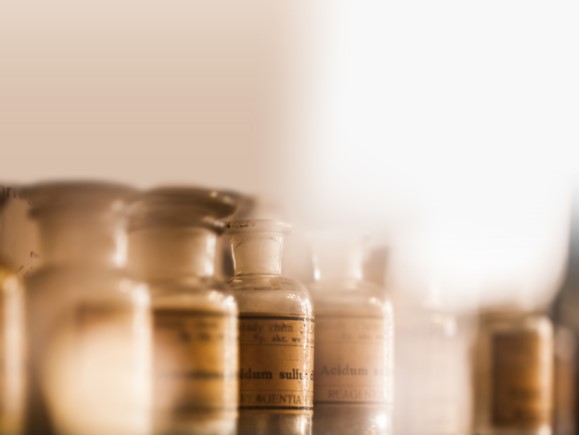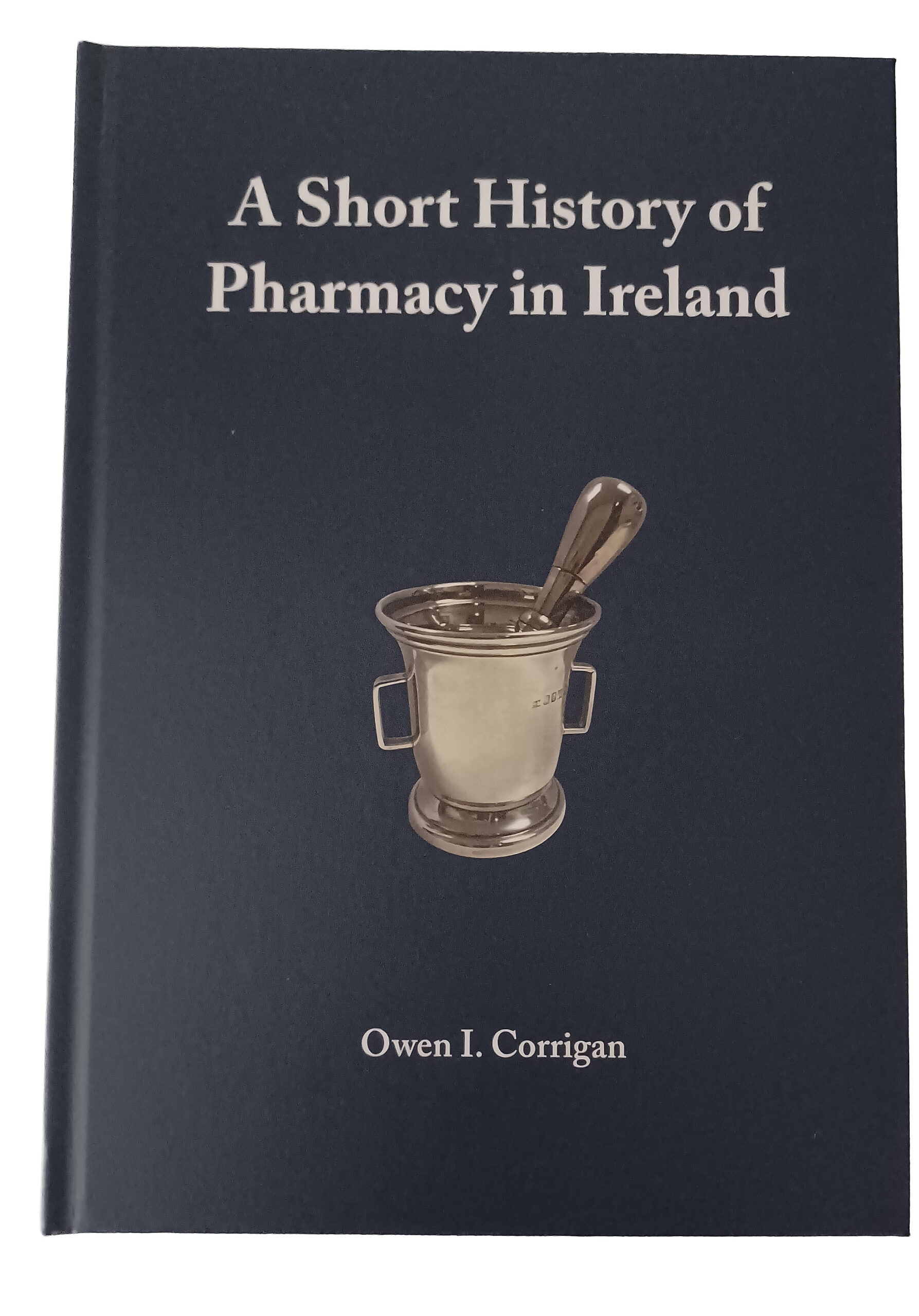Home » Book review: A Short History of Pharmacy in Ireland, Owen I. Corrigan
Owen I. Corrigan, Fellow Emeritus Professor of Pharmaceutics in TCD, has been a prolific contributor to the world of pharmacy. Whether it was on the founding executive of the IPU, on the PSI Council, or his role as co-inventor of the nicotine patch, he has had a bird’s eye view of key aspects of Irish pharmacy for the best part of half a century. IPU Review Editor Jack Shanahan reviews Prof. Corrigan’s book, A Short History of Pharmacy in Ireland, in this article.

In this book, Professor Emeritus Owen I. Corrigan spans a vast tract of knowledge starting with the druids, arcing through the Middle Ages and finally settling on the current landscape. While potentially epic in scale, he wisely chose the short version.
A Short History of Pharmacy in Ireland is an engaging exploration of the evolution and significance of pharmacy throughout Irish history. In this interesting book, Prof. Corrigan delves into the origins of pharmacy in Ireland, tracing its development from Diancecht, the healer of the Tuatha De Danann, to modern-day practice. The book offers an insightful narrative of how pharmacy interwove with society in Ireland and helped advance medical knowledge. It even addresses the pharmacist/apothecary/chemist/druggist question by demonstrating the legal evolution of terms and definitions. It is interspersed with gems of knowledge. A typical nugget is the seemingly justifiable claim that the first instant coffee was invented by Henry Bewley in 1854. He was a partner in ‘Bewley and Evans, Apothecaries and Chemists to the Queen’.
Through meticulously researched chapters, Prof. Corrigan takes readers on an enthralling journey, laced with stories. While early pharmacy lore is more speculation, there is a clear evidence of a hereditary healing class dating from at least the eighth century. The book delves into the rise of pharmacy in the Middle Ages, its development during the fifteenth to the eighteenth centuries, and its maturing over the last two hundred years. It explores the contributions of pioneering pharmacists and apothecaries, and their influence on the understanding of medicinal substances and formulations, and the modern profession. Furthermore, Prof. Corrigan skilfully interweaves the impact of major historical events and issues on pharmacy in Ireland, particularly the sometimes clear demarcation between papist and the Anglo-Irish. The book concludes with an epilogue and an entreaty to extend the author’s work into a more comprehensive history.

A Short History of Pharmacy in Ireland is an exemplary work that demonstrates Prof. Corrigan’s extensive knowledge of, and personal interest in, much of the subject matter. The narrative is intriguing, adeptly guiding readers through centuries of pharmacy evolution while maintaining a cohesive and engaging storytelling approach. The book benefits from a well-organised structure that allows readers to grasp the intricacies of pharmacy development in Ireland, in chronological order, albeit the final chapters are more interwoven.
“ The narrative is intriguing, adeptly guiding readers through centuries of pharmacy evolution while maintaining a cohesive and engaging storytelling approach.”
The author’s research is commendable, drawing from a wide array of primary and secondary sources to present what appears to be an accurate historical account. Moreover, Prof. Corrigan adroitly contextualises pharmacy’s evolution within broader historical contexts, highlighting its interconnectedness with cultural, scientific, and social advances. This approach enhances the reader’s understanding of how pharmacy has been a small, but significant, part of helping shape modern Ireland. One anecdote, about a poisoning attempt on Chieftain Shane O’Neill, illustrates the perennial concern around the control of lethal substances. It reminds me of a story recounted by my pharmacist grandfather, where he was a witness in a trial about a suspected murder by strychnine. While intriguing, these stories also go the core of the drive to create a regulated profession of pharmacy. The public sleep a little sounder knowing that a vast range of poisons are safely controlled.
While the book excels in many aspects, there are obvious compromises forced by the nature of such a broad task. The early chapters are interwoven with well researched references, which may be heavy going for some. Like almost all professions, most of the major changes have occurred in the last few decades. While some readers might like more consideration of the rapid progression of pharmacy in recent times, it would probably dilute what is a well-considered and balanced work.
A Short History of Pharmacy in Ireland is a skilful depiction of the significant contributions of the apothecary and pharmacist to Irish history, and vice versa. Prof. Corrigan’s expertise and appetite for the subject shine through, making this book a valuable resource for students, scholars, and anyone interested in the evolution of pharmacy in Ireland. Its engaging narrative, supported by extensive research, ensures that readers will be enriched by this enlightening journey through the annals of Irish pharmacy history. Without a doubt, this book deserves a place on the bookshelves of pharmacists, and anyone with an interest in Irish history.
A Short History of Pharmacy in Ireland, by Owen I. Corrigan, Lettertec Publising ISBN 978-1-914488-95-5. Go to lettertecbookstore.com.
Jack Shanahan

Editor, IPU Review
Highlighted Articles